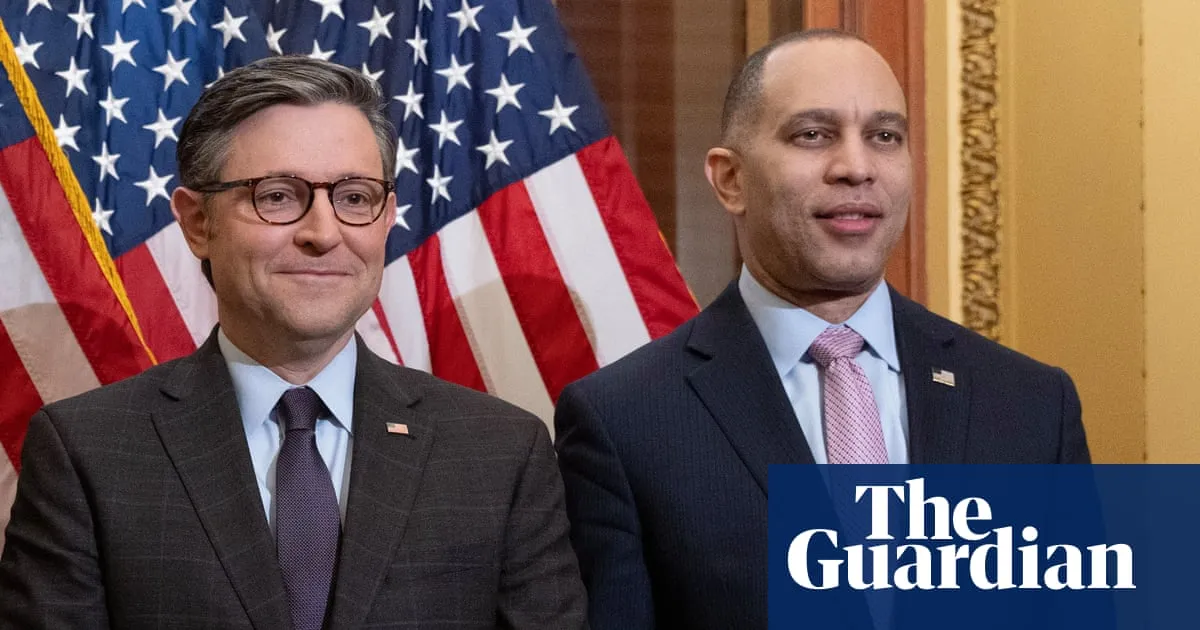
On Wednesday, the House of Representatives was prepared to cast a crucial vote on legislation aimed at concluding the longest government shutdown in U.S. history. This legislative move comes amidst rising tensions among Democrats who have expressed outrage over a Senate-brokered compromise that does not extend expiring healthcare subsidies. House Speaker Mike Johnson has called lawmakers back to Washington after a prolonged recess of over 50 days.
Earlier this week, a faction of Senate Democrats collaborated with Republicans to move forward with a funding bill that would sustain the federal government through the end of January. However, this proposal notably excludes the extension of vital tax credits, leading to a strong backlash from the Democratic Party. Many members have labeled this plan a betrayal, and influential progressive groups are even calling for the resignation of Senate Minority Leader Chuck Schumer.
All Republicans supported the funding measure, except for Rand Paul of Kentucky, along with eight moderate Democratic members—some of whom are either newly re-elected or nearing the end of their terms. As the House gears up for the expected vote on day 42 of the shutdown, hundreds of thousands of furloughed federal workers are missing paychecks, millions of Americans are at risk of losing food assistance, and airlines are warning travelers of ongoing disruptions.
On Tuesday night, the House Rules Committee voted 8-4 along party lines to advance the Senate package, paving the way for it to be brought to the House floor. During the committee hearing, top Democrat Jim McGovern criticized Republicans for their absence during the shutdown, questioning, “Where the hell have you been?” He further accused them of having "quiet quit" their responsibilities.
In response, Virginia Foxx, the committee chair, attributed the shutdown to Democratic actions, asserting they left the negotiations “empty-handed” after failing to secure an extension of the enhanced healthcare subsidies. Despite not achieving this goal, the senators who sided with Republicans claim to have secured a commitment from Republican Senate Majority Leader John Thune to schedule a vote on extending the tax credits by mid-December.
If the healthcare subsidies expire, millions of Americans could face significant hikes in their healthcare premiums or entirely lose their marketplace coverage. The short-term government funding bill aims to maintain current funding levels through January 2026, alongside three provisions that will support programs at the Department of Veterans Affairs, USDA, and FDA, as well as legislative branch operations.
Additionally, the continuing resolution includes measures to prevent mass federal firings and to reverse dismissals that occurred during the shutdown. It also guarantees back pay for workers who have been without paychecks for weeks.
During a press conference on Capitol Hill, Hakeem Jeffries, the House Minority Leader, stated his “strong expectation” that House Democrats would oppose the funding proposal. He revealed a joint amendment aimed at extending the Affordable Care Act tax credits for three additional years, which was subsequently rejected by the Republican-controlled House Rules Committee.
“Because of the Republican refusal to extend the Affordable Care Act tax credits, in the midst of a cost-of-living crisis, healthcare for people across this country is on the brink of becoming unaffordable,” Jeffries asserted.
With a slim majority of 219 members, Speaker Johnson can only afford to lose two votes on this bill, and the dissenting vote from Thomas Massie of Kentucky is anticipated. Nevertheless, Republican leaders remain optimistic that the legislation will pass on Wednesday and be sent to former President Trump for his signature.
At a Veterans Day event in Arlington National Cemetery, Trump congratulated Johnson and referred to the Senate bill as a “very big victory,” declaring, “We’re opening up our country,” and criticizing the shutdown as unnecessary.